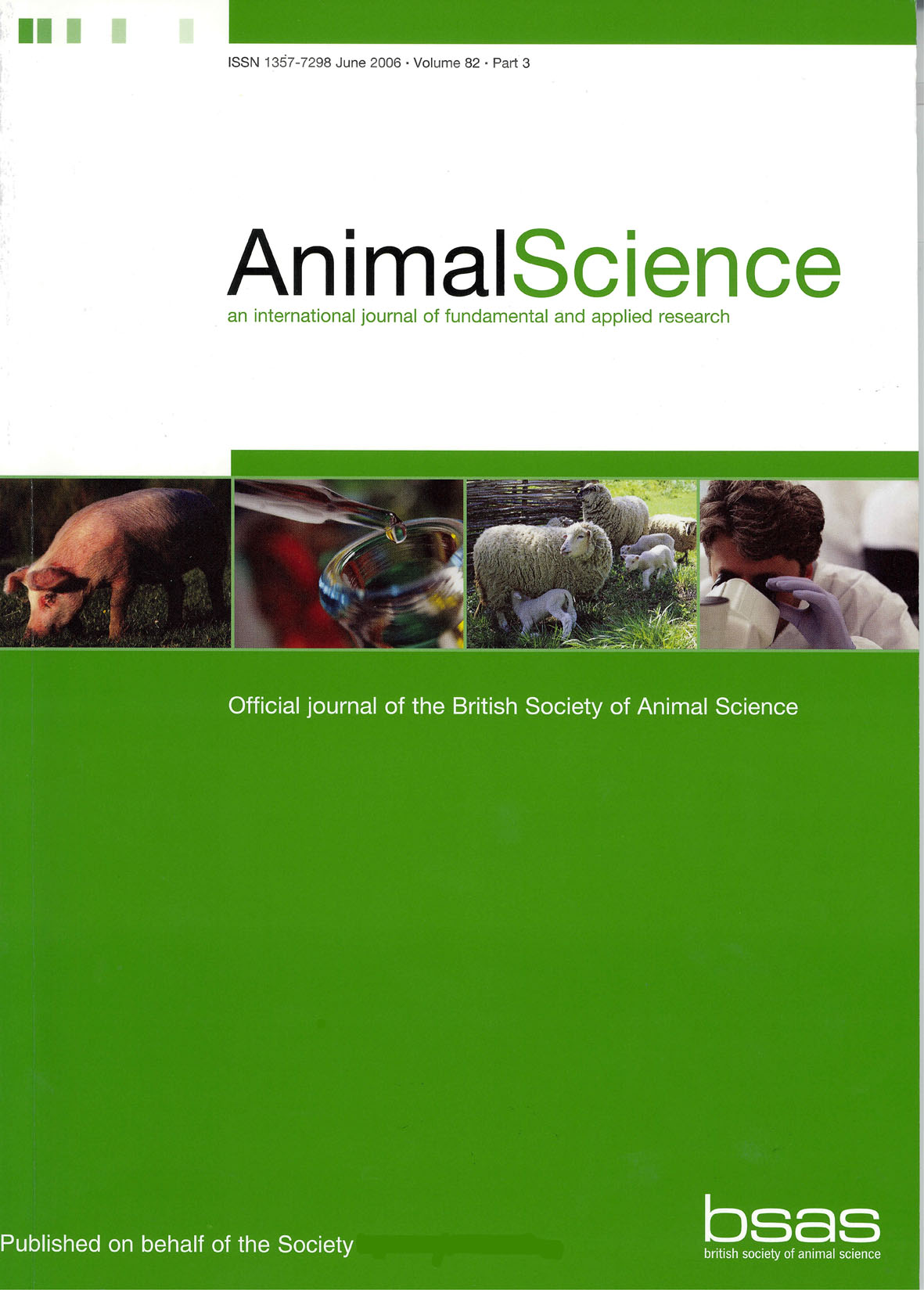Article contents
The effects of involuntary coprophagy on the production of skatole in growing pigs
Published online by Cambridge University Press: 02 September 2010
Abstract
Six boars weighing about 65 kg were penned individually in preliminary observations to investigate their response to increasing levels of faeces in a concentrate diet fed as a gruel. During an introductory 5-day period pigs were restricted to 1·5 kg concentrates plus 100 g fresh faeces daily. The daily concentrate allowance was then increased to 2·2 kg and faeces increased by 50 g/day providing the ration was consumed completely. Two animals showed diarrhoea at intakes of 1 kg faeces per day while the remaining four animals showed no signs of ill health at the maximum allowance of 1·4 kg faeces per day.
In the main experiment littermate pairs of the same sex (16 boars plus 16 gilts in total) were allocated to control (concentrates only) or treated (concentrates plus fresh faeces) groups. Animals were housed in metabolism crates from about 55 kg live weight and the diet allowances were increased gradually up to 2·5 kg concentrates with or without 500 g fresh faeces per day. This was achieved on day 17 and continued to slaughter some 40 days later when pigs weighed around 85 kg live weight. Levels of skatole and indole were significantly higher in the caecal contents of treated pigs at slaughter but similar in faeces compared with controls. There was no effect of dietary treatment on skatole or indole levels in subcutaneous fat.
It seems unlikely that natural coprophagy would contribute significantly to skatole and indole levels in carcass tissues.
Keywords
- Type
- Research Article
- Information
- Copyright
- Copyright © British Society of Animal Science 1991
References
- 5
- Cited by


